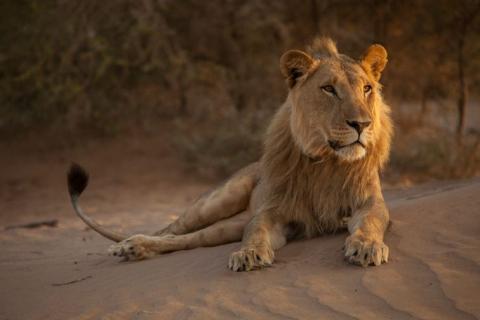Namibia’s conservation expert, Dr. Philip Stander, says research is crucial to the conservation of endangered desert lions.
Dr. Stander has therefore called on youth to take up nature conservation studies to find solutions to human-wildlife conflict.
Born and bred in Namibia, Dr. Stander has been living in the desert for more than 25 years.
When it comes to conservation, the Skeleton Coast Park in the Kunene Region is his playground, and this is the only place in the world where desert lions are found.
Dr. Stander says the lions were on the brink of extinction due to human-wildlife conflict.
He, however, discovered a small pride that survived and managed to document the lions’ adaptation to the harsh environment.
“I worked a lot at involving the tourism communities and basically uplifting the value of lions for tourism but then also working really closely with the local communities to try and mitigate those conflicts, and I mean some of those conflicts at times were really quite intense; you know, people lost a lot of livestock and people got really angry with the government and with conservation, but somehow we managed to hold a good relationship and to work towards finding a solution while also ensuring that we still maintain this really unique lion population.”
The expert stressed that although the population of desert lions is between 50 and 80, the wild animals attract tourists from all over the world.
Dr. Stander developed an early warning system that mitigates conflict between the communities and the lions.
“If we can look after our natural places, it would provide such stability within the country. It is also hugely profitable from a tourism point of view; the world is going into travel, sort of a global economy with a global population, and we have things to offer that no other country has. It’s got space, it’s got unique wildlife like lions on the beach that you can see nowhere else, and the future lies in the young people. I call on them to look into wildlife, to look into nature; there’s a big future for all of us there.”
The scientist is based at Mowe Bay, which is 360 kilometres from Henties Bay.
Dr. Stander is now working hard to turn his house into a desert lion research centre for the country.



Leave a Reply